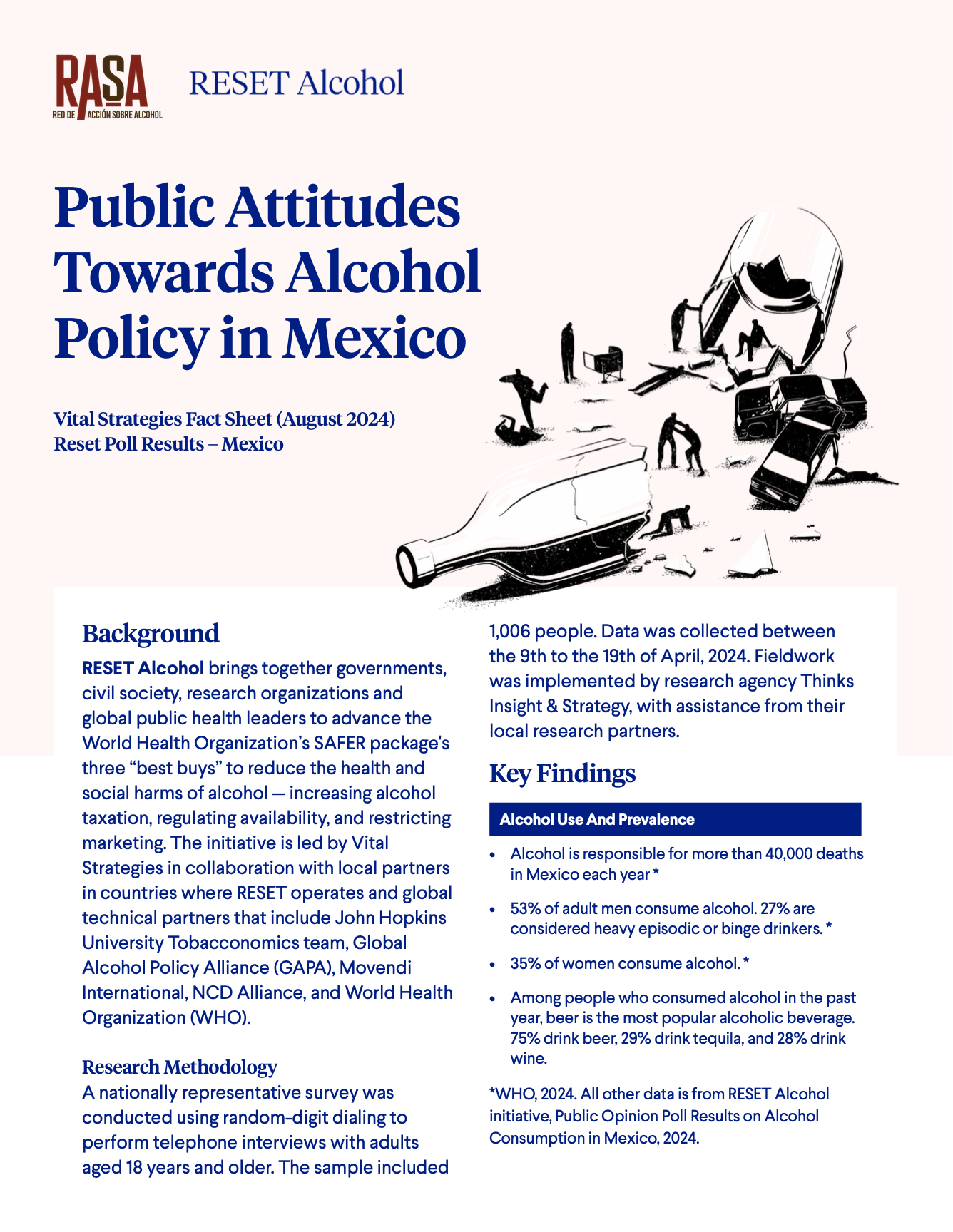RESET Alcohol is an initiative of Vital Strategies. that brings together national governments, civil society, researchers, and leaders in public health and alcohol policy to implement three alcohol best-buy policies from the World Health Organization’s SAFER technical package: increasing taxation, regulating availability and restricting marketing.
RESET Alcohol provides financial, technical, communications and advocacy support to governments, civil society organizations and research institutions, primarily in Latin America, Africa and Asia for health, social and economic gains.
The initiative is focused on population-level, policy interventions that will create an environment where healthy behaviors are easier to achieve.
Vital Strategies commissioned Thinks Insight & Strategy, a research agency, to conduct a cross-country alcohol survey in focus countries to inform the RESET work. Specifically, this research sought to measure:
- Perceptions of alcohol use as a public health problem in the country.
- Knowledge about alcohol harms.
- Attitudes towards alcohol use, including perceived susceptibility and severity.
- Social norms around alcohol use.
- Support for government action, including specific policy proposals.
This fact sheet from Mexico offers key highlights of the data for government officials, other stakeholders and journalists interested in alcohol policy.
Recent Abstracts
Effects of Heat on Early Childhood Development
Blood Lead Surveillance of Children and Pregnant Women in Tamil Nadu, India
Sportswashing through Media: Coca-Cola’s Olympic Play – A Research Report
What’s in Our Food?
Mais Dados Mais Saúde
More Data, Better Health – Primary Health Care
Mais Dados Mais Saúde: Experiência De Discriminação Cotidiana Pela População Brasileira
More Data, Better Health – Experience of everyday Discrimination by the Brazilian population
Monitoramento de Estratégias pelo Fim da Violência contra Crianças e Adolescentes
Harm Reduction: The Neglected Pillar of US Drug Policy
